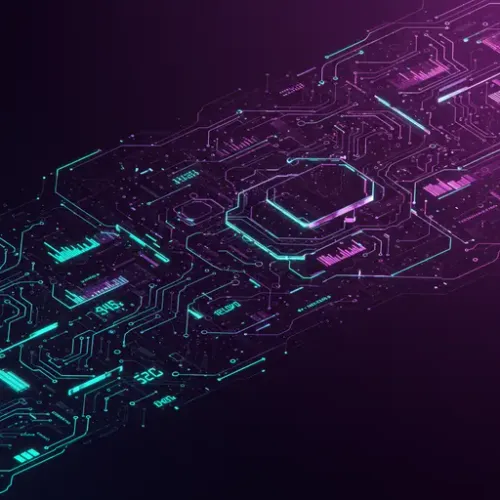Sam Altman: AI will cause job losses and national security threats

The AI Report
Daily AI, ML, LLM and agents news
The rise of artificial intelligence continues to dominate headlines, with its potential to reshape industries and society debated at the highest levels. Recently, OpenAI's chief, Sam Altman, delivered a stark warning from Washington: AI could lead to sweeping job displacements and introduce grave national security threats. However, this powerful vision of a transformative, and at times unsettling, future is met with a crucial counterpoint – the real danger might not be AI itself, but how we choose to wield it.
The Dual Nature of AI: Promise and Peril
Altman paints a vivid picture of AI’s utopian applications, particularly in customer support. Imagine calling a service and being greeted by an AI agent so intelligent, so capable, that it eliminates the frustration of phone trees and transfers. This AI, he suggests, would be a "super-smart, capable person"—making no mistakes and resolving issues swiftly. He even asserted that current AI models like ChatGPT can be "better diagnosticians than most doctors in the world," hinting at a revolution in healthcare. These are compelling visions of efficiency and accessibility, promising significant enhancements to our daily lives and services.
Yet, Altman doesn't shy away from the darker implications. He foresees entire sectors experiencing "total job losses," with customer support often cited as a prime example of an industry ripe for complete automation. Beyond employment, the stakes escalate dramatically when considering national security. Altman expresses profound concern over the potential for hostile nations to weaponize AI, using it to cripple critical infrastructure like the US financial system. Furthermore, the burgeoning power of voice cloning technology presents a terrifying avenue for "unstoppable fraud," especially given that some financial institutions still rely on voiceprints for authentication. This dual message of immense progress and immense destruction underscores the critical juncture we face.
Beyond Automation: The Imperative for Human-Centric AI Deployment
While Altman's warnings echo through policy discussions, industry experts like Manoj Chaudhary, CTO of integration firm Jitterbit, offer a vital perspective: "AI isn’t what threatens jobs, but rather poorly planned deployment." Chaudhary argues that the true peril lies not in the powerful tools themselves, but in their application without purpose or human judgment. A blind rush for technological solutions, driven solely by the pursuit of quick efficiencies, risks overlooking the invaluable human insight that truly drives innovation and value. AI, even the most sophisticated systems, falls short where empathy, nuance, and ethical considerations are paramount.
This highlights a fundamental truth: AI is a tool, and its impact is determined by human intent and oversight. The emphasis must shift from what AI *can* do to what we *should* do with AI. Without careful, human-led oversight and a clear understanding of its limitations, the unintended consequences of AI misuse—be it job disruption, algorithmic bias, or security vulnerabilities—could be devastating.
Navigating the Future: Actionable Strategies for Responsible AI
The conversation around AI is no longer just about technological advancement; it's about governance, ethics, and societal preparedness. Here are key takeaways and actionable insights:
- Prioritize Thoughtful Deployment: For businesses and organizations, resist the urge for hasty AI integration. Instead, conduct thorough assessments to understand where AI genuinely adds value, enhances human capabilities, or solves complex problems, rather than merely automating existing processes.
- Invest in Human Skills: Anticipate the evolving job landscape. Focus on upskilling and reskilling workforces for roles that require human judgment, creativity, emotional intelligence, and complex problem-solving—areas where AI currently struggles.
- Champion Ethical Frameworks: Advocate for and implement robust ethical guidelines and regulatory policies for AI development and deployment. This includes addressing bias, ensuring transparency, and establishing accountability for AI systems, particularly in sensitive domains like healthcare and finance.
- Foster Collaboration: Engage in cross-sector dialogue among technologists, policymakers, ethicists, and the public. A collaborative approach is essential to build consensus on responsible AI practices and to develop agile governance models that can adapt to rapid technological change.
- Maintain Human Oversight: Even in highly automated systems, ensure there are always "human in the loop" checks and balances. As Altman's own admission about trusting ChatGPT with his health illustrates, human discernment remains irreplaceable for critical decisions where lives or livelihoods are at stake.
The path forward requires a delicate balance: embracing AI’s potential for progress while rigorously mitigating its risks. OpenAI and other leading AI firms position themselves as essential navigators through this complex landscape. Ultimately, however, the responsibility to shape a beneficial AI future rests with all of us – through careful planning, ethical considerations, and unwavering human oversight. Only then can we ensure that AI truly serves humanity, rather than imperiling it.

The AI Report
Author bio: Daily AI, ML, LLM and agents news
